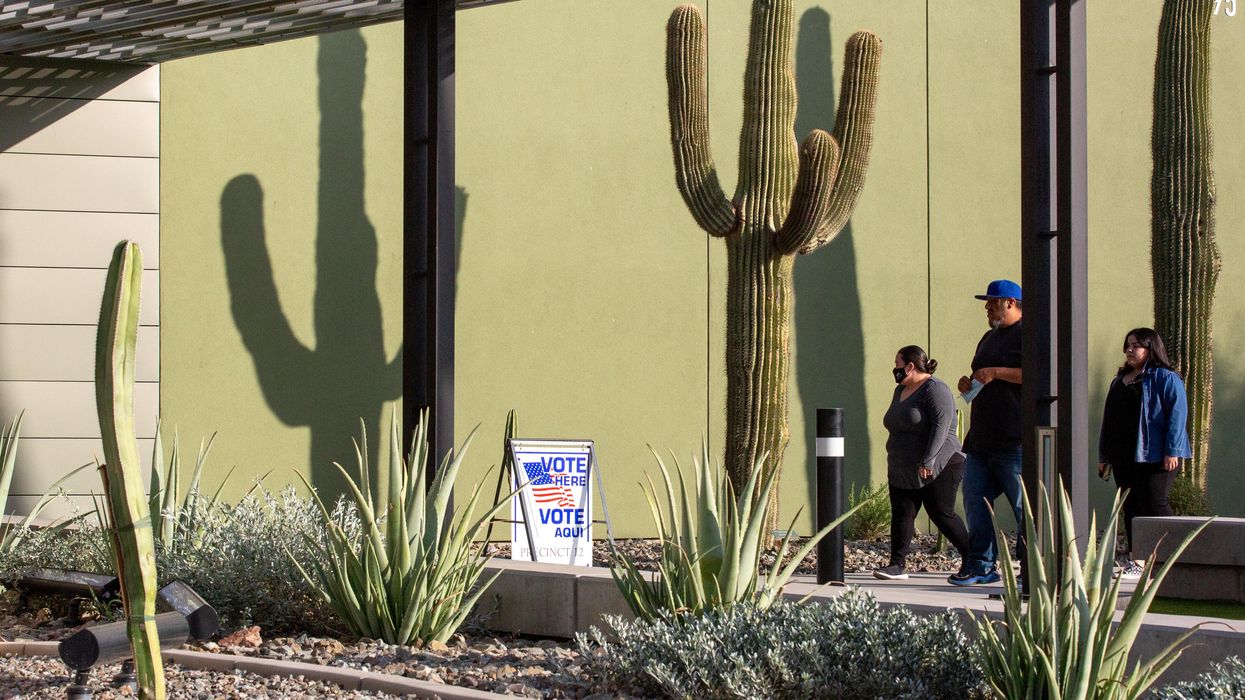There’s more at stake on Election Day than federal, state and local races. Voters in 37 states will decide the fate of 132 ballot initiatives, including a handful that could change how the democratic process works in nearly a dozen states.
Ballotpedia, the nonprofit organization that bills itself as the “digital encyclopedia of American politics,” has identified ballot measures affecting election administration in seven states as well as proposals in three states to change the ballot measure process itself.
A ballot measure, or ballot initiative, is a policy proposal to be decided by the voters of a state rather than by the legislature. About half the states have a process through which citizens can create initiatives and get them on the ballot. In others, such proposals are driven by the government.
Efforts to change the ballot initiative process are not new. In fact, RepresentUs recently released a study tracking five years’ worth of attempts to alter the rules.
“When our government isn’t responsive to the people, ballot initiatives are one of the tools that can rein in the power of self-interested politicians and give it back to the voters – where it belongs,” said RepresentUs CEO Joshua Graham Lynn. “Instead of spending their time strangling the voice of the people, elected officials need to uphold it. What are they so afraid of?”
Following is a breakdown of the proposals on the ballot this fall.
Initiatives impacting initiatives
On Nov. 8, voters in three states will determine whether to change the process.
In Arizona, the ballot questions are actually three proposed amendments to the state Constitution. The first would permit state lawmakers to change or defund ballot-approved laws if either the Arizona Supreme Court or the U.S. Supreme Court rules them unconstitutional. Opponents of the measure say it would give legislators too much power to override the will of the voters while supporters say it is necessary for fixing laws.
A second proposed amendment would require future ballot initiatives to address a single issue (and also require a clear description in the measure’s title).
The third measure would raise the threshold for approving ballot measures creating taxes to 60 percent of voters, more inline with the two-thirds requirement in the Legislature for creating taxes.
In Arkansas, a proposed constitutional amendment would change the requirement for approving future ballot initiatives from a simple majority to a three-fifths supermajority (in this case 60 percent of ballots cast). That requirement would apply to both citizen-driven and legislatively proposed initiatives. According to Ballotpedia, just 11 states currently require something more than a majority for constitutional amendments and no states require a supermajority for citizen-led state statutes (with a few specific exceptions in Florida, Utah and Washington).
Voters in South Dakota rejected a measure similar to the Arkansas proposal in June.
Finally, in Colorado, a ballot initiative would require future measures related to taxes to include details on the impact of such proposals.
Voting impacting voting
The seven voting-related measures cover voter identification, noncitizen voting, ranked-choice voting and more.
Arizona, the only state on both lists, has a ballot initiative that would require additional information from people who want to vote by mail. Currently, voters must sign early ballot envelopes, but the proposed measure would also require them to include their birth date and government ID number. It would also require all in-person voters to show photo identification. Current law allows voters to prevent two items, such as utility bills, that prove name and address in lieu of a photo ID.
A proposal on the ballot in Connecticut would allow no-excuse early voting. Connecticut is among five states that have restricted early voting.
Michigan voters, who already demonstrated the power of ballot measures by removing politics from the redistricting process a few years ago, will now decide whether to make changes to the voting process. A proposed constitutional amendment would ensure military overseas ballots postmarked by Election Day are counted, allow for an affidavit in place of a photo ID for voting purposes, allow the use of drop boxes and require a nine-day early-voting period. It would also create voter protections against harassment.
In Louisiana, voters will decide whether to amend their Constitution to ensure local governments do not allow noncitizens to vote. No city in the state is among the handful across the country that allows such a practice. The Louisiana vote will take place on Dec. 10, because the state uses Nov. 8 as a primary election.
Like Arizonans, the people of Nebraska will decide whether to change the voter ID requirements. The state does not currently require a person to present photo identification in order to vote, but a proposed constitutional amendment would change that.
Nevada may take the next step toward becoming the third state (after Maine and Alaska) to use ranked-choice voting for congressional and state elections. The proposal, which must be approved by voters in both 2022 and 2024, would create an open primary with the five candidates who receive the most votes regardless of party advance to an RCV general election. Alaska recently debuted its “top four” system.
Ohio, like Louisiana, is considering a constitutional amendment banning noncitizens from voting. In 2019, the people of Yellow Springs passed a measure allowing noncitizens to vote.




















Marco Rubio is the only adult left in the room